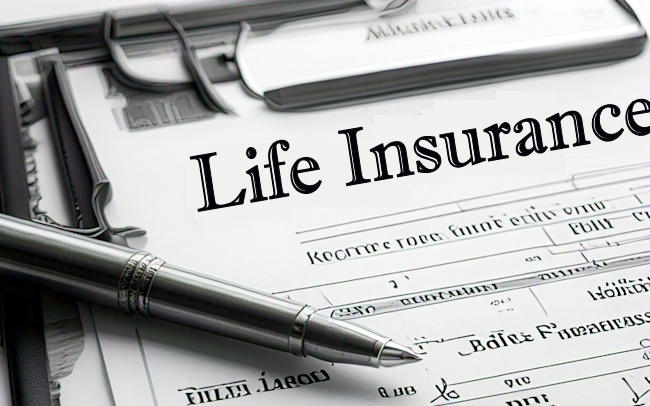Let’s start with Whole Life, a type of insurance which, as its name suggests, is designed to cover you for the remainder of your life. The idea with Whole Life is that though you pay more than you would with Term Life, the extra money gets invested for you by the insurance company in a variety of funds, and accrues interest. The longer you have the policy, the more interest you earn, the lower your premiums get, and eventually, your interest may wind up paying your premiums for you. Sounds great, doesn’t it? You wind up paying nothing, yet are still insured.
Whole Life Insurance

However, there are disadvantages as well. Insurers will often pitch Whole Life as an investment opportunity as well as a life insurance policy. This is true, but there is a catch. Yes, you do earn interest on the extra premiums you pay, but the companies who provide you with the insurance earn far more money than you do, as they invest your money in stocks and bonds and only pay you a small portion of the results. As an investment opportunity, Whole Life is usually a poor investment, and you’d be far better off investing your money on your own or through a broker, rather than through an insurance company.
Although whole Life insurance will allow you to “lock in” a lower rate for the rest of your life, for the most part, Whole Life is chosen by middle-aged people. Basically, because whole life insurance costs more vs. term life insurance at any given point it is cheaper to get the insurance coverage via a term insurance policy. For instance, if you are 25 and you need $250,000 worth of life insurance you might pay $400 per year for Term insurance but for $600 a year you could get whole-life and lock in that rate for the rest of your life. While the term policy only locks in that rate for 10 years. When you are 35 and your term policy expires you have to get a new policy and then you might be paying $600 per year for term insurance while whole life insurance might have increased to $800/year. (Not real prices, just examples).
Term Insurance
Young people or families just starting out, unless they have a good salary, often choose term insurance because it provides the most coverage for the lowest price. With Term Life, you’re covered for the term of the policy rather than for the term of your life. You have a number of options available to you as you choose your term, and the premiums are much more affordable.
Term Life is a great choice for young families who want to make sure they have coverage in case something happens. For people under the age of 50, Term Life can be very cheap. The costs rise after that, and some companies won’t offer Term Life to anyone over the age of 60 or 65, but until you get to that point, Term Life is much more reasonable.
Term Life is great because you can make sure you’re insured until your kids leave the house, the Mortgage is paid off and you’ve retired – in other words, until your family would no longer be in dire straits if you passed on – and then terminate that policy for something better suited to the needs you and your spouse will have. In some cases, if you’ve made investments during the period of your Term Life policy, you may choose not to have life insurance in your later years, trusting in those investments to cover your spouse adequately after you’re gone.
With Term Life, there is a disadvantage though – you’re only covered as long as you pay the premiums. If you pay into a Term Life policy for 20 years, stop paying for a year, and then die, your beneficiaries don’t get a single cent. And, once you outlive your policy, you don’t get the money you paid into it back. You paid for coverage, you didn’t need it, and that’s that. Just like car insurance or homeowners insurance, you are covered as long as you pay the premiums. Unlike other insurance, the premiums go up drastically as you get older. Also with term insurance, if you become ill or injured you might not be able to get a new policy when the old one expires although some policies do have guaranteed renewability clauses.
Whole Life Insurance and Estate Planning
On the flip side, Whole Life can be great for those who are wealthy and want help in estate planning. Another option is a convertible Term Life policy, which allows you to “upgrade” your Term Life policy into a Whole Life policy in your later years.
One last very important value of Whole Life insurance is that the policy can be used as a loan to some extent for the insured person. It is possible to borrow against the accrued value (the savings portion above the insurance value) at very good interest rates. But remember you are actually borrowing your own money. And by doing that you will defeat the purpose of whole-life in that you may not have the cushion available to continue the insurance if you take it out of the policy.
As always, your best option will be to check with your carrier for current rates and to shop around to see what makes the most sense for you in your current situation.
See Also:




